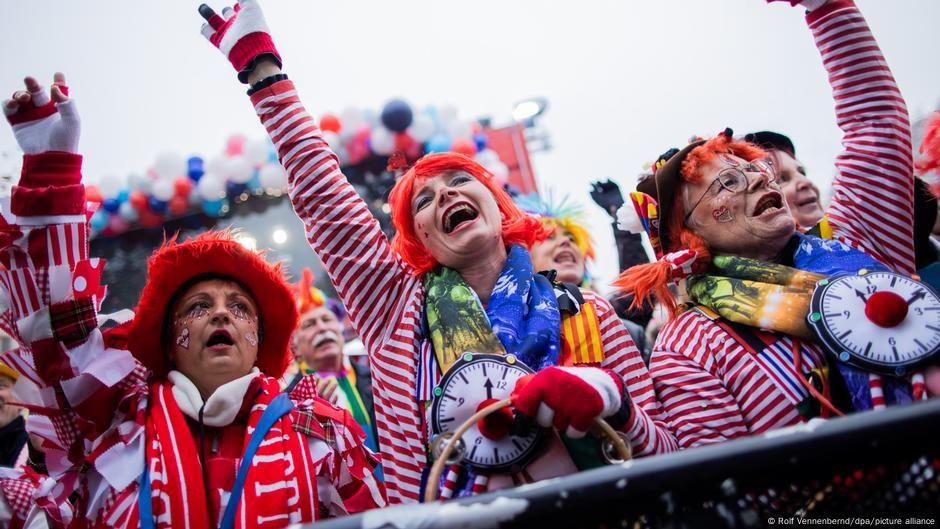<
div>
Carnival season begins at 11:11 am on the Thursday before Ash Wednesday, also known as Weiberfastnacht (Women’s Carnival Day). The event is observed throughout the Rhineland region in Germany, where thousands of people dressed in colorful costumes participate in street festivities for several days.
This year, the slogan for Cologne’s carnival is “FasteLOVEnd – wenn Dräm widder blöhe” (Carnival — when dreams bloom again). The phrase, reminiscent of the flower power era of the 60s and 70s, reflects a time when people reacted to global crises by adopting a carefree “peace and love” attitude.
According to Christoph Kuckelkorn, president of Cologne’s Carnival festival committee, carnival provides comfort, joy, community, and hope during difficult times. He encourages people to immerse themselves in carnival’s dream world and hopes that it inspires them to make the real world a little better.
Roman roots
Carnival traditions in Cologne can be traced back to the city’s establishment as Colonia Claudia Ara Agrippinensium by the Romans 2,000 years ago. The city celebrated the Saturnalia festival, a Roman tradition honoring the god Saturn. The festival included merrymaking, role reversals between slaves and masters, and a parade featuring a “Carrus navalis” (ship on a cart), similar to the word carnival.
A wild Germanic spring festival also influenced German carnival traditions. The festival involved frightening masks and noise-making to scare away evil winter spirits.
How carnival became a religious festival
After Emperor Constantine declared Christianity as the state religion in 343, the Saturnalia was replaced with Christian celebrations. The church adapted the festival by focusing on the expulsion of the devil rather than evil spirits. The date was aligned with the liturgical year, and the period before Lent became a time for fasting. Before this period, people were allowed to indulge in exuberant celebrations, including feasting on meat (“carne” in Latin), leading to the current carnival traditions.
Carnival gets organized
Influential Cologne citizens founded the “Festordnende Comité” (festival organizing committee) in 1823 and created the figure of the “Carnival Hero,” who became the “Carnival Prince.” Other regions have prince-and-princess couples as celebratory ruling figures. The carnival season opens on November 11 at 11:11, reflecting a tradition of “fool’s equality” with the repdigit number 11.
Fool’s privilege
Carnival provides a space for criticism and protest, with carnival speeches, floats, and costumes serving as platforms for addressing grievances and political issues. However, there have been discussions about certain costumes being considered racist and insulting to other cultures. While bans are not planned, the Cologne Festival Committee encourages study and consideration of costumes to avoid offense.
This article is an updated version of a piece originally published on November 11, 2022.
Source: https://www.dw.com/en/carnival-a-2-000-year-old-tradition/a-63707828?maca=en-rss-en-all-1573-rdf







